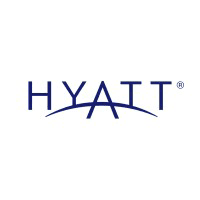
Cambria
How much does Cambria cost?
Initial Investment Range
$15,400,290 to $222,056,249
Franchise Fee
$97,440 to $133,654
The franchise offered is for the right to construct and operate a hotel under our name and primary business trademark "CAMBRIA®" ("CAMBRIA").
Enjoy our partial free risk analysis below
Unlock the full risk analysis to access 9 more categories covering 100+ risks.
Cambria April 1, 2025 FDD Risk Analysis
Free FDD Library AI Analysis Date: July 16, 2025
DISCLAIMER: Not Legal Advice - For Informational Purposes Only. Consult With Qualified Franchise Professionals.
Franchisor Stability Risks
Start HereDisclosure of Franchisor's Financial Instability
Low Risk
Explanation
Choice Hotels International, Inc. (Choice) is a large, publicly traded company. The audited financial statements in Item 21 do not indicate financial instability, showing significant revenues and consistent profitability. An independent financial review is always crucial, as a franchisor's financial health is vital for providing long-term brand support. Weak financials could jeopardize your investment and the brand's ability to evolve.
Potential Mitigations
- Have your accountant review the franchisor's audited financial statements, including all footnotes and the cash flow statement, to independently assess its financial health.
- A business advisor can help you evaluate the franchisor's stability and ability to support its extensive franchise system over the long term.
- Your attorney should confirm that the financial statements comply with all federal and state disclosure requirements.
High Franchisee Turnover
High Risk
Explanation
Item 20 data reveals a notable rate of franchisee exits in 2024, with six outlets leaving the system via non-renewal, reacquisition, or other cessation from a starting base of 67. This level of turnover may suggest potential issues with profitability or franchisee dissatisfaction. This is particularly concerning when viewed alongside the significant volume of litigation disclosed in Item 3, including cases with large adverse judgments against the franchisor.
Potential Mitigations
- Contacting a significant number of former franchisees from the list in Exhibit L is crucial to understand their reasons for leaving the system.
- Your accountant should analyze the turnover data over the three-year period to identify any negative trends in system stability.
- Discussing the disclosed litigation and franchisee turnover rates with your attorney will help you assess the potential risks to your investment.
Rapid System Growth
Medium Risk
Explanation
Item 20 data indicates significant growth, with 60 new hotels signed but not yet open as of year-end 2024. While growth can enhance brand recognition, such rapid expansion can sometimes strain a franchisor's ability to provide adequate site selection assistance, training, and ongoing operational support to all franchisees. You should verify that the franchisor's support systems have adequately scaled to handle this expansion.
Potential Mitigations
- Engaging a business advisor to assess whether the franchisor's support infrastructure has grown in line with its unit expansion is a wise step.
- Inquiring with both new and established franchisees about the current quality and timeliness of the support they receive is essential.
- Your attorney can help you understand the franchisor's contractual obligations for support as outlined in Item 11.
New/Unproven Franchise System
Low Risk
Explanation
This risk was not identified in the FDD Package. Choice is a large, long-established company with extensive experience in the hotel industry and in franchising multiple brands. For a new or unproven system, you would need to assess the viability of the business model and the experience of its management, as there is less of a track record to rely upon, increasing your investment risk.
Potential Mitigations
- When evaluating any franchise, it is critical for your business advisor to research the experience of the franchisor's management team.
- Your accountant should scrutinize the financial statements of a newer franchisor to ensure it is adequately capitalized for long-term support.
- It is important to have your attorney review the terms of the agreement for any protections in case the franchisor fails.
Possible Fad Business
Low Risk
Explanation
This risk was not identified in the FDD Package. The Cambria brand operates within the established upscale hotel sector, which is not typically considered a fad. A fad business is one tied to a short-lived trend, posing a risk that consumer demand could disappear, leaving you with a long-term contract for an obsolete business. Evaluating the long-term market need for any product or service is a critical step in due diligence.
Potential Mitigations
- A business advisor can help you research the industry to determine if a concept has long-term market sustainability or is based on a temporary trend.
- Assess the franchisor's plans for innovation and adaptation to changing market tastes with your business advisor.
- Your accountant can help you model the financial risks if consumer demand were to decline significantly after a few years.
Inexperienced Management
Low Risk
Explanation
This risk was not identified in the FDD Package. Item 2 indicates that the key officers and directors of Choice have extensive experience in the hospitality and franchise industries. When considering a franchise, it is important to evaluate the background of the management team, as inexperience can lead to poor strategic decisions, weak operational systems, and inadequate franchisee support, thereby increasing your business risk.
Potential Mitigations
- A thorough review of the executive team's background in Item 2 with your business advisor is a key due diligence step.
- Speaking with current franchisees about their direct experiences with the management team's competence and support is recommended.
- Your attorney can help you understand how the management's experience might impact the franchisor's ability to fulfill its contractual obligations.
Private Equity Ownership
Low Risk
Explanation
This risk was not identified in the FDD Package. Item 1 indicates that Choice Hotels International, Inc. is a publicly traded corporation, not one that is majority-owned by a private equity firm. When a franchisor is owned by a PE firm, there can be a risk that management decisions prioritize short-term returns for investors over the long-term health of the brand and its franchisees.
Potential Mitigations
- A business advisor can help you research the ownership structure of any franchisor and the track record of any parent private equity firm.
- It's valuable to ask existing franchisees if they have observed changes in fees or support levels following an acquisition.
- Your attorney should review the franchise agreement for terms that might change upon a sale of the company.
Non-Disclosure of Parent Company
Low Risk
Explanation
This risk was not identified in the FDD Package. Item 1 clearly identifies Choice Hotels International, Inc. as the franchisor and its financial statements are provided in Item 21. In some franchise systems, a thinly capitalized subsidiary acts as the franchisor, and if the parent company's financials are not also provided, it can obscure the true financial backing of the system. This can hide financial instability and increase your risk.
Potential Mitigations
- It is important for your accountant to verify that the financial statements provided are for the actual entity you are contracting with.
- Your attorney should determine if a parent company guarantee is necessary or provided if the franchisor entity appears to be thinly capitalized.
- A business advisor can help you research the full corporate structure to understand all affiliated entities and their roles.
Predecessor History Issues
Low Risk
Explanation
This risk was not identified in the FDD Package. Item 1 thoroughly discloses the franchisor's history and its acquisition of the Radisson brands. A complete history is crucial because a predecessor's negative track record, such as high franchisee turnover or significant litigation, could indicate underlying problems that might persist with the current franchisor. Inadequate disclosure of predecessor history can prevent a full risk assessment.
Potential Mitigations
- Ensuring a complete review of Item 1 with your attorney is important to understand the full history of the franchise system.
- It is wise to ask long-term franchisees about their experiences under any previous ownership or management.
- A business advisor can help you conduct independent research into the history and reputation of any predecessor companies.
Pattern of Litigation
High Risk
Explanation
Item 3 discloses a significant amount of litigation. This includes a class action, a case with RICO and civil rights claims from approximately 90 franchisees, and multiple adverse judgments against Choice for substantial amounts, including one for wrongful termination exceeding $4.4 million. The FDD also lists over 100 collection actions filed by Choice against franchisees in 2024 alone. This history suggests a contentious and litigious environment which could pose a significant risk to franchisees.
Potential Mitigations
- A detailed analysis of all litigation disclosed in Item 3 with your franchise attorney is essential to understand the nature and potential implications of these disputes.
- Considering the volume of litigation, speaking with former franchisees listed in Exhibit L may provide crucial context on the franchisor relationship.
- Your accountant can help you factor potential legal costs into your financial projections, given the litigious history.
Disclosure & Representation Risks
Example Risk: Franchisee Financial Obligations
Blue Risk
Explanation
This risk involves the financial obligations that a franchisee must meet, including initial fees, ongoing royalties, and other required payments. Understanding these obligations is crucial for long-term success.
Potential Mitigations
- Carefully review the Franchise Disclosure Document (FDD) and consult with a franchise attorney to fully understand all financial commitments before signing.
- Conduct regular risk assessments
- Implement monitoring and reporting systems
Unlock Full Risk Analysis
Purchase the complete risk review to see all 102 risks across all 10 categories.
Financial & Fee Risks
Example Risk: Franchisee Financial Obligations
Blue Risk
Explanation
This risk involves the financial obligations that a franchisee must meet, including initial fees, ongoing royalties, and other required payments. Understanding these obligations is crucial for long-term success.
Potential Mitigations
- Carefully review the Franchise Disclosure Document (FDD) and consult with a franchise attorney to fully understand all financial commitments before signing.
- Conduct regular risk assessments
- Implement monitoring and reporting systems
Unlock Full Risk Analysis
Purchase the complete risk review to see all 102 risks across all 10 categories.
Legal & Contract Risks
Example Risk: Franchisee Financial Obligations
Blue Risk
Explanation
This risk involves the financial obligations that a franchisee must meet, including initial fees, ongoing royalties, and other required payments. Understanding these obligations is crucial for long-term success.
Potential Mitigations
- Carefully review the Franchise Disclosure Document (FDD) and consult with a franchise attorney to fully understand all financial commitments before signing.
- Conduct regular risk assessments
- Implement monitoring and reporting systems
Unlock Full Risk Analysis
Purchase the complete risk review to see all 102 risks across all 10 categories.
Territory & Competition Risks
Example Risk: Franchisee Financial Obligations
Blue Risk
Explanation
This risk involves the financial obligations that a franchisee must meet, including initial fees, ongoing royalties, and other required payments. Understanding these obligations is crucial for long-term success.
Potential Mitigations
- Carefully review the Franchise Disclosure Document (FDD) and consult with a franchise attorney to fully understand all financial commitments before signing.
- Conduct regular risk assessments
- Implement monitoring and reporting systems
Unlock Full Risk Analysis
Purchase the complete risk review to see all 102 risks across all 10 categories.
Regulatory & Compliance Risks
Example Risk: Franchisee Financial Obligations
Blue Risk
Explanation
This risk involves the financial obligations that a franchisee must meet, including initial fees, ongoing royalties, and other required payments. Understanding these obligations is crucial for long-term success.
Potential Mitigations
- Carefully review the Franchise Disclosure Document (FDD) and consult with a franchise attorney to fully understand all financial commitments before signing.
- Conduct regular risk assessments
- Implement monitoring and reporting systems
Unlock Full Risk Analysis
Purchase the complete risk review to see all 102 risks across all 10 categories.
Franchisor Support Risks
Example Risk: Franchisee Financial Obligations
Blue Risk
Explanation
This risk involves the financial obligations that a franchisee must meet, including initial fees, ongoing royalties, and other required payments. Understanding these obligations is crucial for long-term success.
Potential Mitigations
- Carefully review the Franchise Disclosure Document (FDD) and consult with a franchise attorney to fully understand all financial commitments before signing.
- Conduct regular risk assessments
- Implement monitoring and reporting systems
Unlock Full Risk Analysis
Purchase the complete risk review to see all 102 risks across all 10 categories.
Operational Control Risks
Example Risk: Franchisee Financial Obligations
Blue Risk
Explanation
This risk involves the financial obligations that a franchisee must meet, including initial fees, ongoing royalties, and other required payments. Understanding these obligations is crucial for long-term success.
Potential Mitigations
- Carefully review the Franchise Disclosure Document (FDD) and consult with a franchise attorney to fully understand all financial commitments before signing.
- Conduct regular risk assessments
- Implement monitoring and reporting systems
Unlock Full Risk Analysis
Purchase the complete risk review to see all 102 risks across all 10 categories.
Term & Exit Risks
Example Risk: Franchisee Financial Obligations
Blue Risk
Explanation
This risk involves the financial obligations that a franchisee must meet, including initial fees, ongoing royalties, and other required payments. Understanding these obligations is crucial for long-term success.
Potential Mitigations
- Carefully review the Franchise Disclosure Document (FDD) and consult with a franchise attorney to fully understand all financial commitments before signing.
- Conduct regular risk assessments
- Implement monitoring and reporting systems
Unlock Full Risk Analysis
Purchase the complete risk review to see all 102 risks across all 10 categories.
Miscellaneous Risks
Example Risk: Franchisee Financial Obligations
Blue Risk
Explanation
This risk involves the financial obligations that a franchisee must meet, including initial fees, ongoing royalties, and other required payments. Understanding these obligations is crucial for long-term success.
Potential Mitigations
- Carefully review the Franchise Disclosure Document (FDD) and consult with a franchise attorney to fully understand all financial commitments before signing.
- Conduct regular risk assessments
- Implement monitoring and reporting systems
Unlock Full Risk Analysis
Purchase the complete risk review to see all 102 risks across all 10 categories.











